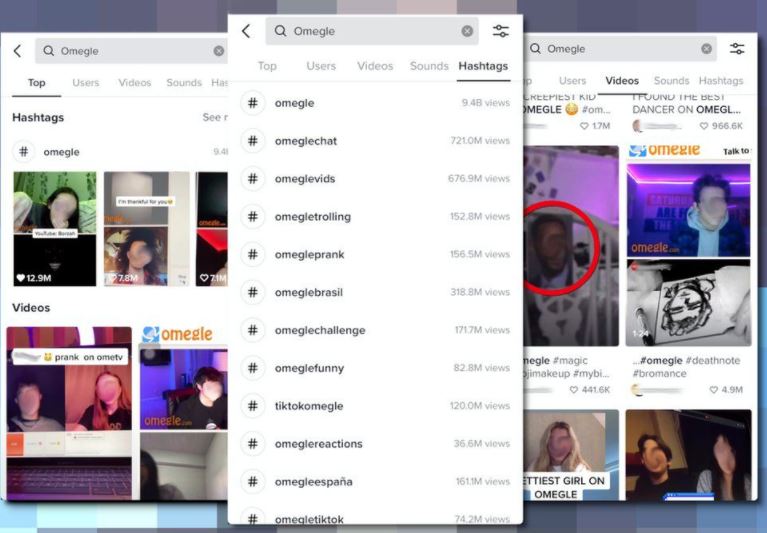Pandemic isolation has led millions of people around the world to try other means of social interaction, including video calling platforms. Omegle is a free platform on which any user can interact by video chat with people from all over the world without registering, which can be very useful for some, although it also carries their security risks.
The BBC recently released the story of Michael, a young man who decided to use Omegle when he was just 14 years old after hearing other kids at his school talk about unusual experiences on this platform. After a few days of using the platform without finding anything strange, the app paired her profile with that of an older woman who convinced him to show him explicit images of his intimate area, which he agreed to without thinking about the consequences: “He was definitely older than me. It was kind of stupid of me; if I could go back, I’d avoid doing it again.”

Now, a few years after that experience, Michael acknowledges that he became addicted to this website: “I started doing other things in front of the camera, usually sexual.” While Omegle offers some anonymity and privacy to users, Michael was unaware that at least one of these encounters was recorded, which caused him problems unexpectedly: “I hadn’t entered this site for over a year, although one day I decided to enter and Omegle paired me with a video of me doing things of a sexual nature” Michael added.
The 21-year-old currently mentions that he decided to share this experience so that new Omegle users think about the risk of sextortion when using this platform.
On the other hand, Omegle does not seem to do much to prevent these practices. Based in the U.S., visits to this website have soared over the past year, partly thanks to the pandemic. While the homepage includes a warning about the risk of sexual predator activity and specifies that it is not for minors, Omegle does not have age or identity verification mechanisms, even a means of reporting security incidents.
Sarah Smith of the nonprofit The Internet Watch Foundation (IWF) points out the security risks associated with using this platform: “This practice is performed using bots and is intended to deceive and extort Omegle users, usually minors.”
Smith believes that the solution is to implement better moderation mechanisms on these platforms, as well as verifying the age of users to protect minors from such activities: “This is a prolific time for sexual predators on the Internet, so platforms must cooperate to prevent these activities,” she concludes.
To learn more about information security risks, malware variants, vulnerabilities and information technologies, feel free to access the International Institute of Cyber Security (IICS) websites.

He is a well-known expert in mobile security and malware analysis. He studied Computer Science at NYU and started working as a cyber security analyst in 2003. He is actively working as an anti-malware expert. He also worked for security companies like Kaspersky Lab. His everyday job includes researching about new malware and cyber security incidents. Also he has deep level of knowledge in mobile security and mobile vulnerabilities.











